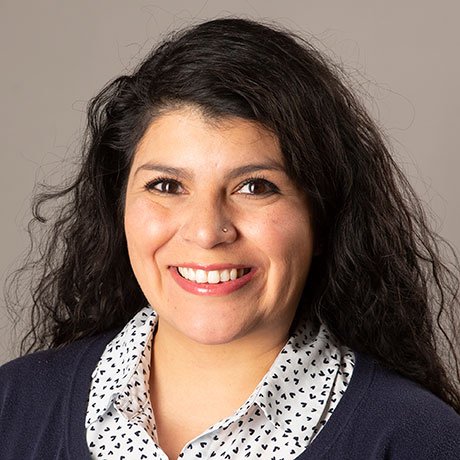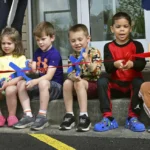Cheyenne College Instructor Launches True Crime Podcast to Give Voice to Victims
Podcast highlights cases that fly under the media radar
- Published In: Other News & Features
- Last Updated: Jan 06, 2023

By Jennifer Kocher
Special to the Wyoming Truth
Renee Nelson was hooked on true crime from an early age. While her friends watched Disney movies or TV sitcoms, she was glued to “Unsolved Mysteries” and “America’s Most Wanted.” When it came time for the Cheyenne resident to choose between a career in law or education, she chose the latter. Today, Nelson, 35, teaches English – and true crime literature classes – at Laramie County Community College and is the wife of a firefighter and mother of two small children.
Nelson had contemplated launching a podcast for the past few years. She kicked this plan into action last summer in the wake of the 2021 murder of Gabby Petito that galvanized law enforcement to quickly find her body and solve the case. As tragic as that was for the Petito family, Nelson couldn’t help noticing that all missing person cases did not receive the same level of attention. She and her class had been discussing the lack of media representation for minor missing persons and crime victims when the Petito case broke.

“I thought, ‘Where is their coverage? Who tells their stories?’And I started thinking… ‘Why don’t I tell their stories,’” she said.
Nelson launched her weekly “Unsolved Wyoming” podcast in July. And she was surprised to learn how many stories there were to tell: Wyoming law enforcement investigated 388 unique missing person cases in 2021 and 381 in 2022, according to an Oct. 2022 report by the Wyoming Survey and Analysis Center at the University of Wyoming. The same report documented 17 homicides in Wyoming between Jan. 1 – Sept. 29, 2022.
A minority of these cases remain unsolved. The Wyoming Division of Criminal Investigation (DCI) missing person database currently lists 83 active unsolved missing person cases, dating back to 1974, and an additional 13 unsolved homicides statewide.
Nelson realized her podcast could give voice to the victims and their families, as well as potentially help law enforcement solve these crimes. The Wyoming Truth recently spoke with Nelson about her first six months behind the microphone. What follows are excerpts from the interview.
What drew you to true crime and made you want to advocate for crime victims?
Nelson: I grew up watching “Unsolved Mysteries” and “America’s Most Wanted,” which then turned into “Dateline” and “20/20” and then basically the Oxygen Network and ID TV. My husband doesn’t understand it and actually expresses concern quite often. But what I have found through my own research, when developing my course for the college, is the reason women are especially drawn to “true crime all the time” is because they are, in a sense, “studying.” They are learning all the red flags to look for.
. . .[M]y mother was a domestic violence survivor, and I had to watch what she went through. I knew those red flags, but as I got older, I realized that crime and violence can look different—and is different across demographics. The perpetrator isn’t always obvious, the signs aren’t always flashing red and not everyone makes it out alive. For me, this platform, my podcast, is about honoring and giving a voice to the people who didn’t get the chance to tell their own story. And hopefully, the audience learns something from listening.
So far, you’ve covered four missing persons cases. What feedback have you received?
Nelson: People seem to be really engaged with the content. A common theme I hear is, “I haven’t even heard of X, I didn’t know of that case.” This is even true of the most current case of Irene Gakwa, a Kenyan woman [living in Gillette] who was reported missing [in] March 2022.
Has one case impacted you more than others?
Nelson: There’s a sliver of each story where I see myself. For example, with Renee Diane Yeargain, there’s the obvious sharing of the same name. But when I interviewed her daughter, Angel, who was 3 when her mother disappeared, the same age as my own daughter, and she shared that she can’t remember her mother’s voice, that broke me a little.
And with Terry Meador, who went missing while hunting, I thought of my own husband. He comes home, and there’s always a story of some type of sketchy situation they got in, and I try not to think of [the] worst case scenario. But how do I not?
With Anne’s Elliot’s story, who became addicted to drugs and ended up on the street where she was last seen in Salt Lake City, I didn’t necessarily see myself in the story…but Emily [Anne’s sister], whom I interviewed for the case, she and I connected in a way that I didn’t expect. We probably talked for close to three hours altogether, and I had to edit it down to what I published. In a lot of ways, I know we were telling Anne’s story, but for Emily, I felt as though I was helping her speak a truth that she hadn’t given herself permission to do before.
What do you hope to achieve with the podcast?
Nelson: I would love for my podcast to help solve a case. But ultimately, what I feel the purpose of my podcast is, is to give families a place to remember their loved one and to share their story and to bring awareness to these cases.
What has been the most rewarding aspect so far?
Nelson: Bringing cold cases to the present and helping families have a platform to share their stories. It’s been really rewarding to receive a text, direct message [DM] or email that they [the family] are pleased with the episode and feel heard.
What’s the hardest part of putting together the podcast?
Nelson: One aspect I didn’t anticipate is the emotional labor…. There was a shift from being a true crime consumer to being a true crime producer. Researching cases, courting families, interviewing them, and then going back and editing the interview…then I do a proof listen. I know these cases well, and they don’t leave me after I hit the “publish” button.
Are there any resounding themes to the crimes and missing person cases?
Nelson: In the short time I’ve been doing this, the one issue I am coming across is if the reported missing individual has a history of drug/substance abuse, the report hasn’t been taken seriously. My insight is that hindsight is 20/20, and the assumption of someone having a relapse can potentially impede the seriousness of a case, and time can be lost.













